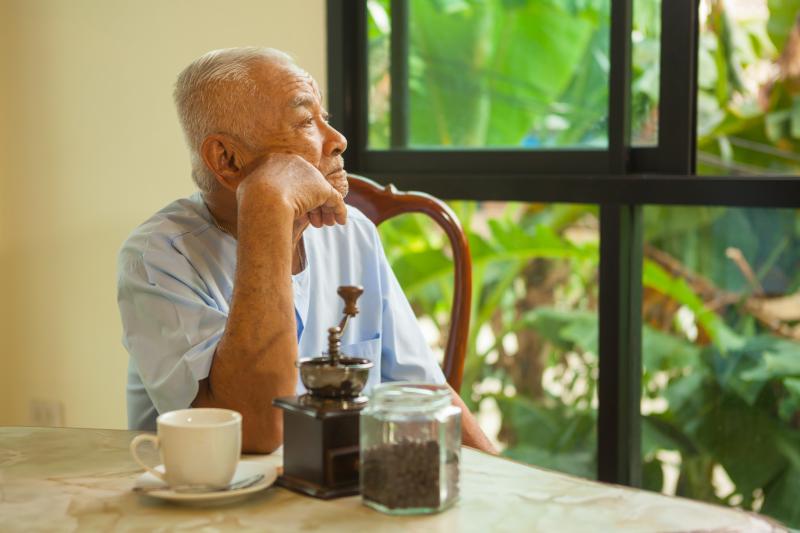 Suicidal thoughts and preoccupation with death in the elderly may be due to underlying causes like depression or dementia and should raise some flags
Suicidal thoughts and preoccupation with death in the elderly may be due to underlying causes like depression or dementia and should raise some flagsFor older adults residing in studio apartments (SAs), living with physical functional difficulty, chronic conditions, having low social support, low self-perceived mental health, poor life satisfaction, low physical activity and being widowed increase the likelihood of developing depression, suggests a Singapore study.
“Resources should be allocated to providing social-care services in community-based settings around SAs, such as senior activity centres, befriending services and socio-recreational facilities, to enable older adults with physical function difficulties to engage in some social activity to minimize isolation and loneliness,” the researchers said.
This cross-sectional study included older adults aged ≥55 years residing in Singapore’s SAs. Multivariable logistic regression was performed.
Compared to being married or having a domestic partner, widowhood demonstrated a correlation with depressive symptoms (adjusted odds ratio [aOR], 1.70, 95 percent confidence interval [CI], 1.01–2.86). Difficulty with physical functions, such as bathing and showering, likewise correlated with depressive symptoms (aOR, 3,74, 95 percent CI, 1.06–13.21). [Proc Singapore Healthc 2019;28:243-251]
An association was also found between depressive symptoms and chronic conditions, such as cataract (aOR, 1.67, 95 percent CI, 1.01–2.77) and urinary tract disorder (aOR, 4.70, 95 percent CI, 1.21–18.26). Moreover, poorer social support, self-perceived mental health, life satisfaction and exercise behaviour exhibited dose-response relationships with a higher risk of depressive symptoms (p-trend<0.001).
Earlier studies also showed an association between widowhood and depression. Of note, older adults were more likely to develop depression following bereavement than young adults. [Psychol Med 1994;24:613-624; SSM Popul Health 2017;3:20-36; Geriatr Nurs 2014;35:428-433; Lancet 2005;365:1961-1970; J Affect Disord 2013;151:1083-1089; Psychiatr Serv 1995;46:43-48]
Published literature supported that older adults who had difficulty with bathing, showering and short-distance walking, as well as poor vision, were predisposed to depression due to their impaired ability to self-care and socialize. [Int J Geriatr Psychiatry 2014;29:109-110; Acta Psychiatr Scand Suppl 194;377:73-76; Clin Psychol Rev 2009;29:243-259]
The inverse relationship between exercise behaviour and depression was also in line with other studies, which found that exercise reduced depression in older adults by improving physical function and providing social interaction when exercising with others. [Br J Psychiatry 2015;207:235-242; Am J Prev Med 2013;45:649-657; Int Arch Otorhinolaryngol 2016;20:124-131]
Previous research likewise suggested that the perception of having social support, concern from others, a sense of belonging and access to neighbours correlated with less psychological distress. Life satisfaction appeared to be greatly influenced by general physical and psychological health status. [Scand J Public Health 2011;39:757-765; Scand J Public Health 2011;39:337-344]
“For our study, life satisfaction encompassed a broad range of indicators like health status, financial status, relationship with family (spouse, children, siblings) and others (friends, neighbours), community environment, and leisure,” the researchers said. “This suggested complexity in assessing the well-being of older adults, which required a more integrative approach to prevent depression.”